Stark County's first Smart Home opens its doors
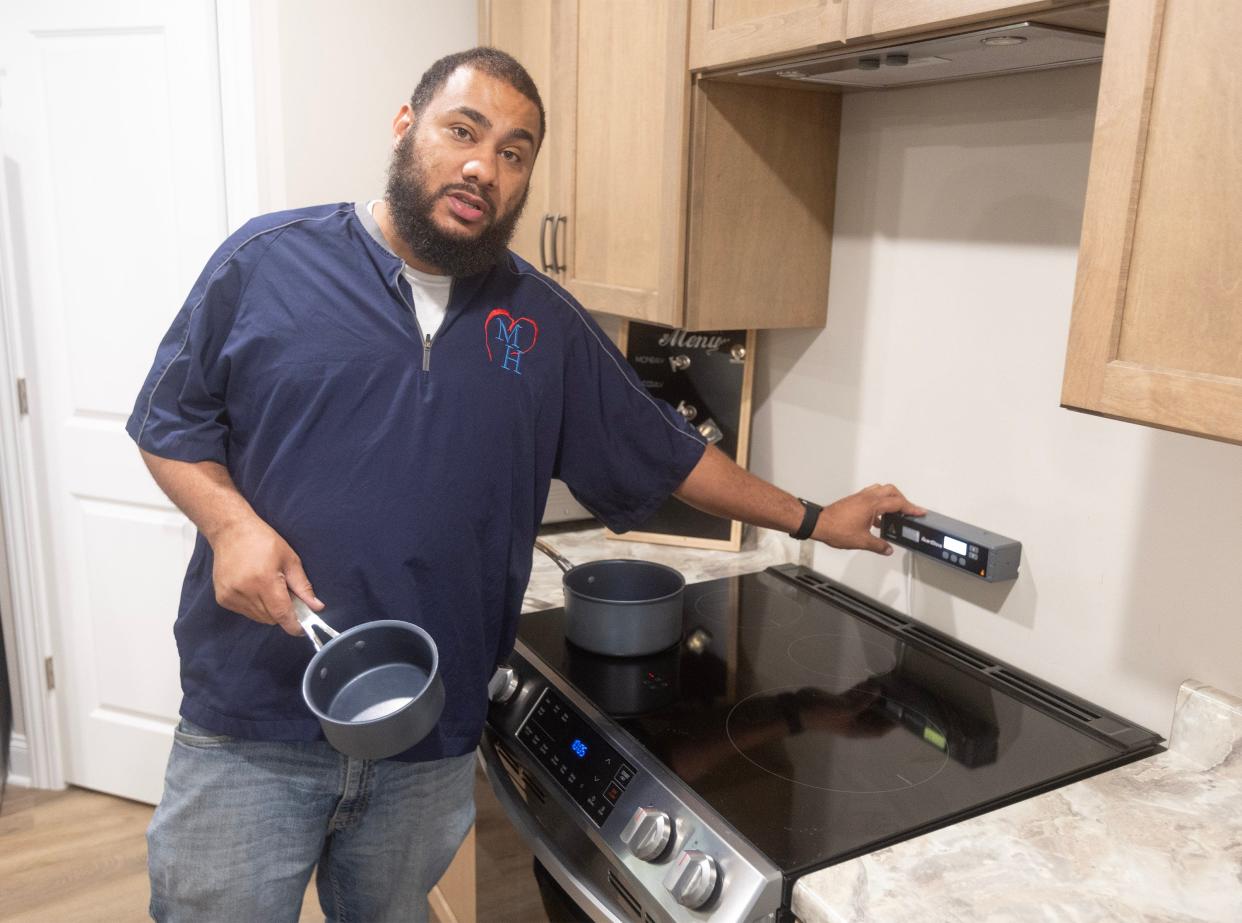
PLAIN TWP. – Smart home devices may seem like a convenience, but for individuals with developmental disabilities, they can play a crucial role in their ability to live independently.
The county's first "Smart Home" welcomed its first three residents this summer. This single-level home contains assistive technology designed to make it easier for those with developmental disabilities to live on their own. It comes amid a statewide push for more technology usage in disability care and an ongoing shortage of direct support providers.
The project is a collaboration between the Hope Homes Foundation, Charis Homes, Midwest Health Services and the Stark County Board of Developmental Disabilities.
When was Stark County's first Smart Home built?
Construction on the three-bedroom house started last fall.
The county board of developmental disabilities works closely with the Hope Homes Foundation, a Stow-based nonprofit that provides affordable housing to individuals with developmental disabilities. Hope Homes owns 22 rental properties across Stark, Summit and Wayne counties.
The build on Martindale Road NE was underway when Hope Homes and Stark DD decided to make it a Smart Home. Both agencies had interest in constructing a house with assistive technology, and the timing was right, Stark DD Superintendent Bill Green said.
The house itself was funded through the Ohio Department of Developmental Disabilities' Community Capital Assistance Program. Stark DD paid for the smart technology. Midwest Health Services joined the project to provide support services.
Construction on the project wrapped up in May, and three residents moved in July 11.
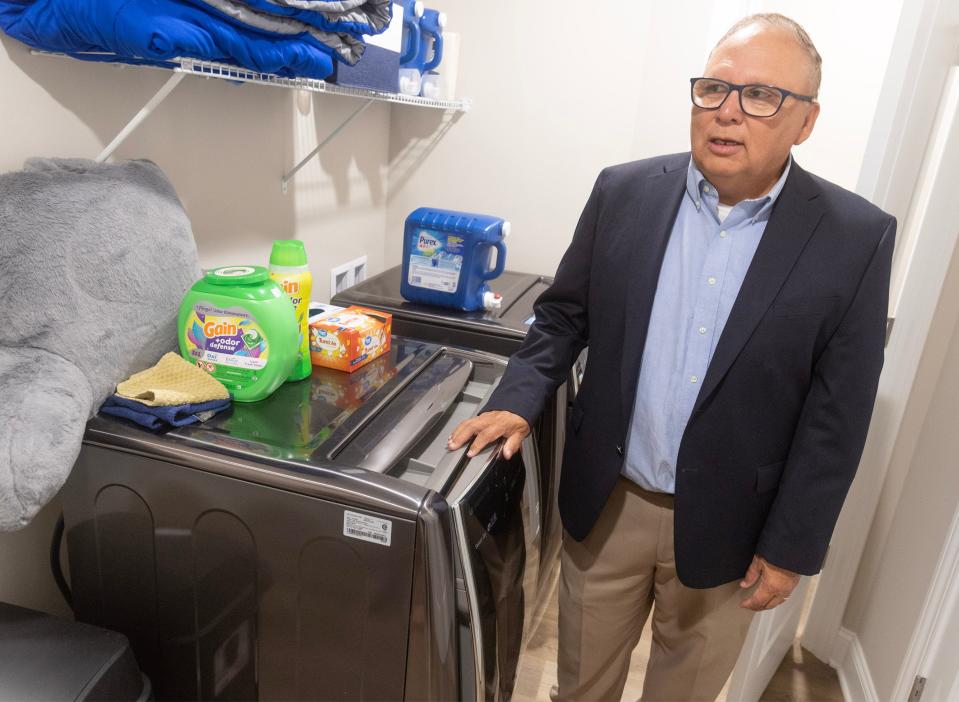
Home offers smart stovetop, refrigerator, other assistive tech
On the outside, the Smart Home looks no different than other nearby houses.
But its unique features become apparent once you step inside.
The house has a zero-entry design, meaning no steps are required to access any part of the home. This allows wheelchair users to navigate the house without the need for stairs or ramps. It is also equipped with a two-way remote support system that enables service providers to check in with residents via video chat.
In the kitchen, the induction stovetop uses pots and pans that do not heat up on the outside. Juron Martin, a program coordinator with Midwest Health Services, said the stovetop only works using these specific pans, and the burners automatically turn off if they do not detect activity after a certain amount of time.
Meanwhile, the smart refrigerator reads aloud step-by-step recipes that residents can follow, and the washer and dryer have sensors that detect the amount of clothing inside, helping simplify the laundry process.
Other technology includes a smart lock and Ring doorbells, a monitored fire alarm system, fall detection sensors and watches equipped with GPS that can track a resident's location if they venture outside the perimeter of the home.

Smart technology promotes independent living, addresses direct support provider shortage
Paul Herrera, chief executive officer at Hope Homes, said the technology affords individuals with developmental disabilities an opportunity to live independently while maintaining access to the services they need.
"Every county is trying to do something (with assistive technology)," he said. "The state of Ohio really emphasizes the use of technical smart devices."
In 2018, former Ohio Gov. John Kasich signed an executive order creating the state's Technology First Initiative, which requires technology to be considered as part of the support and service plan of any individual with a developmental disability.
Herrera said he knows of Smart Homes in Cincinnati and Toledo. The Summit County Board of Developmental Disabilities also has a Smart Home that individuals can tour to test out the technology.
Herrera said the Smart Home promotes the technology-first concept while addressing an important issue in disability care: the direct support provider shortage.
The support service industry has faced a workforce shortage for years, and the problem was only exacerbated the pandemic. More than 80% of service providers reported turning away new referrals because of staffing issues, according to a 2022 workforce survey by ANCOR.
"There's a well-documented shortage of staff everywhere," said Gina Beamer, regional director at Midwest Health Services.
Herrera said smart devices can help ease the burden on providers by reducing the need for staff.
Stark County's Smart Home will serve as both a residence for three individuals with developmental disabilities and a model home for assistive technology. The residents and their guardians agreed as part of their lease with Hope Homes to allow others to tour the home and test the technology themselves.
"There's going to be a referral process," said Shawn Miller, service and support administrator at Stark DD. "But (individuals) will reach out, and they'll be able to take their teams on a tour just to see the different kinds of technology, and I would be able to demonstrate it for them."
Green said the agreement gives residents first right of refusal if they decide they do not want anyone visiting on a particular day.
"(We) recognize that first and foremost it is their home," he said.
Green said the county board currently has 81 individuals with supportive technology in their service plan. He expects that number to increase in the coming years.
Reach Paige at 330-580-8577, pmbennett@gannett.com or on Twitter @paigembenn.
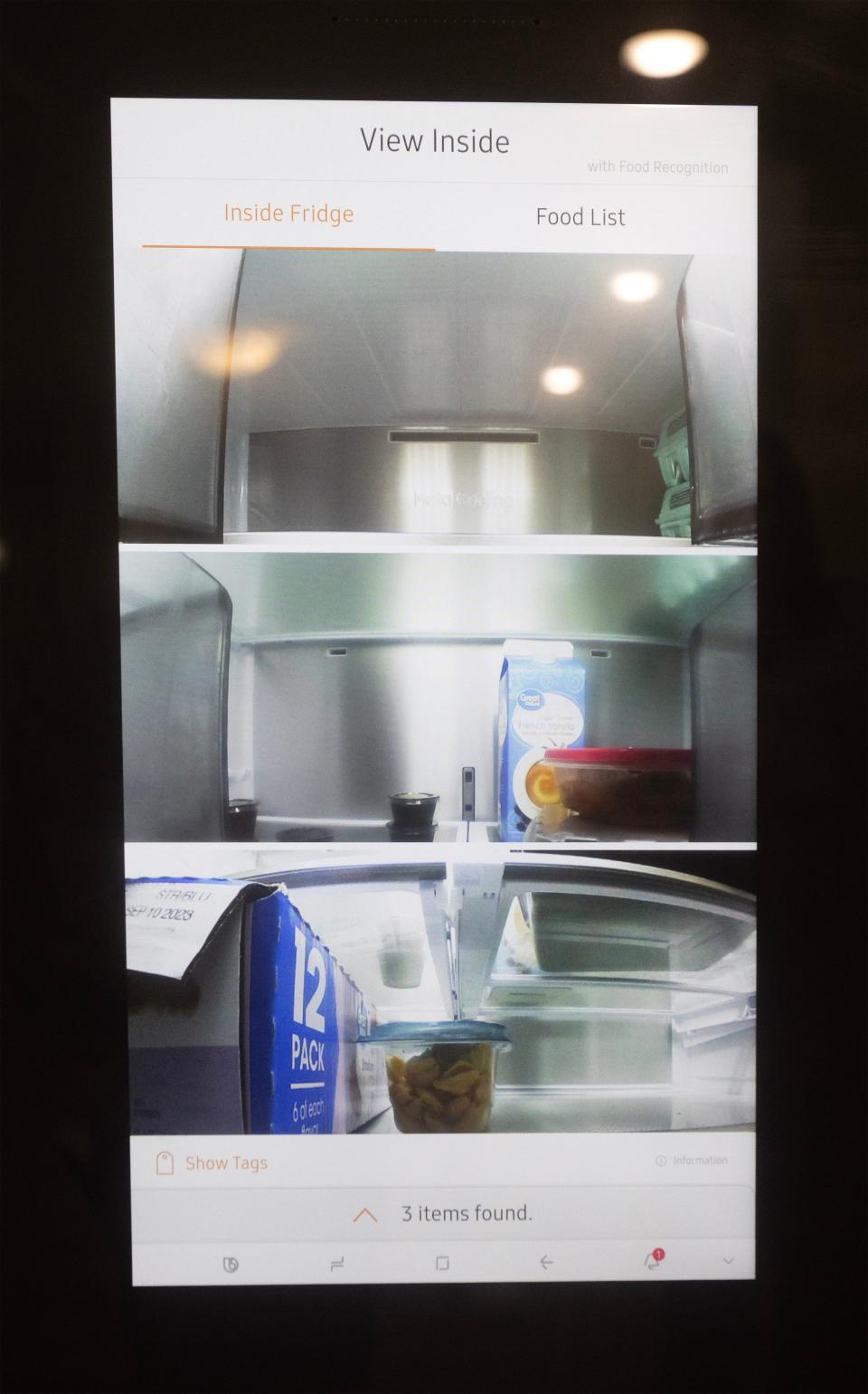
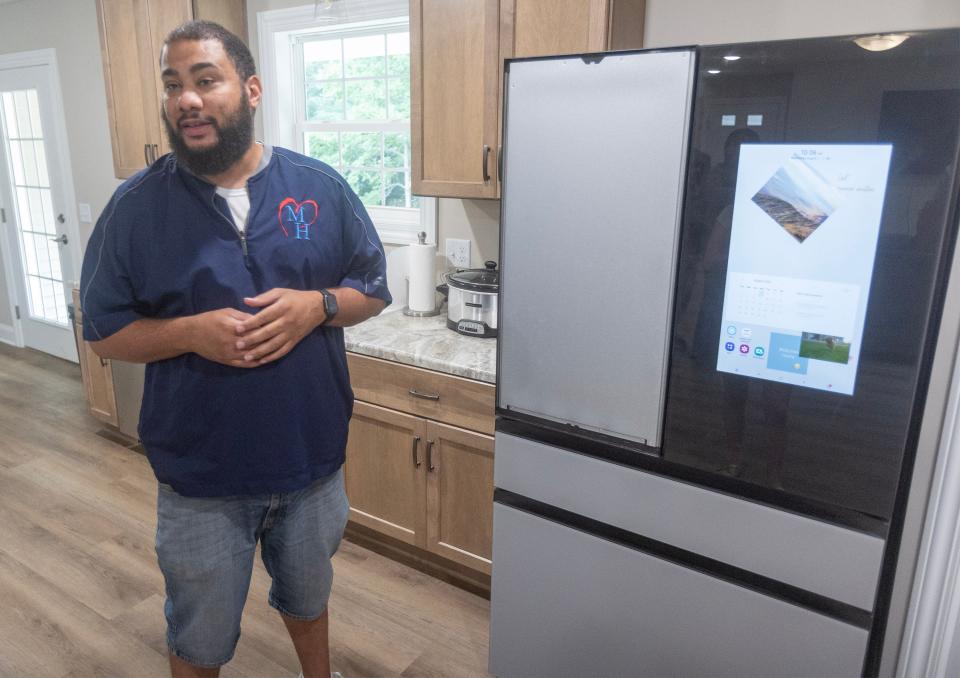
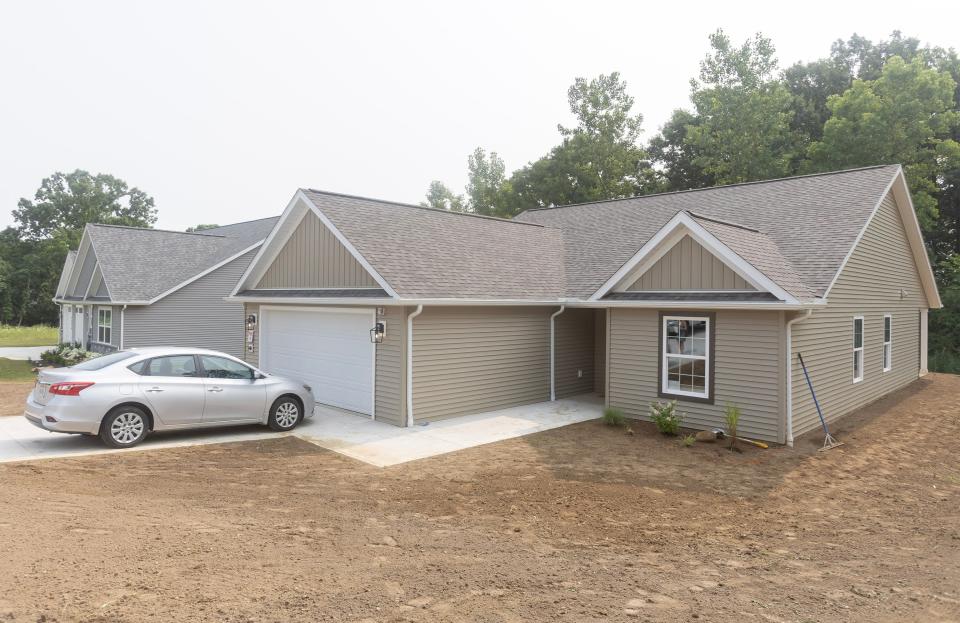
This article originally appeared on The Repository: Smart Home with assistive technology opens in Stark County

